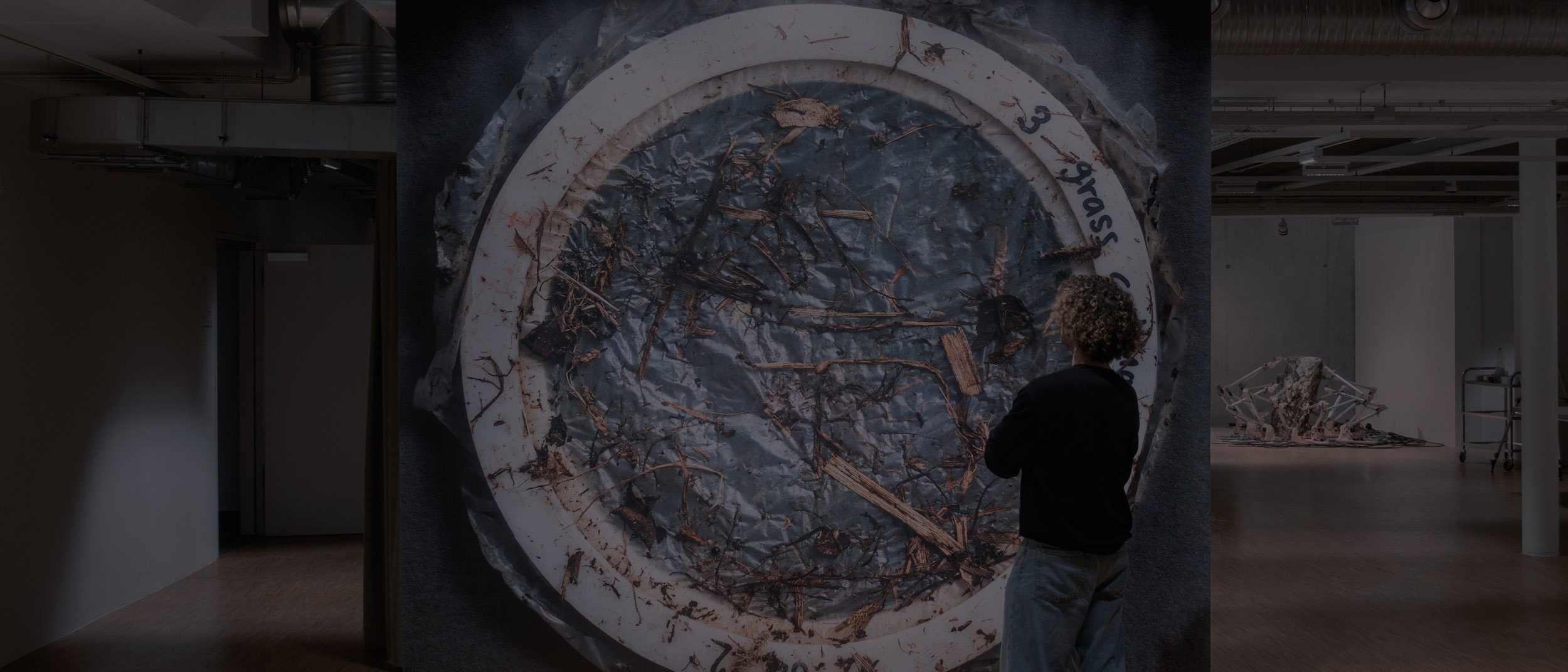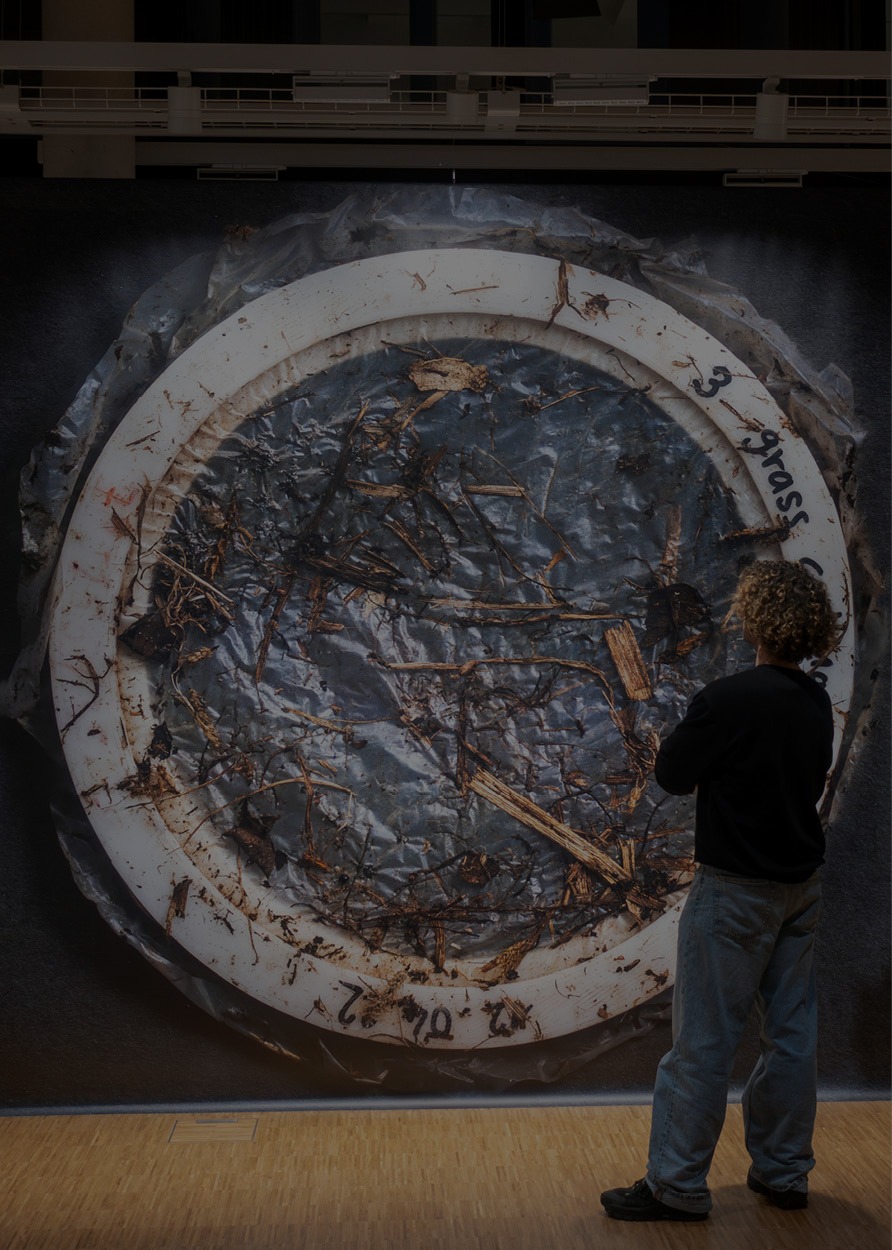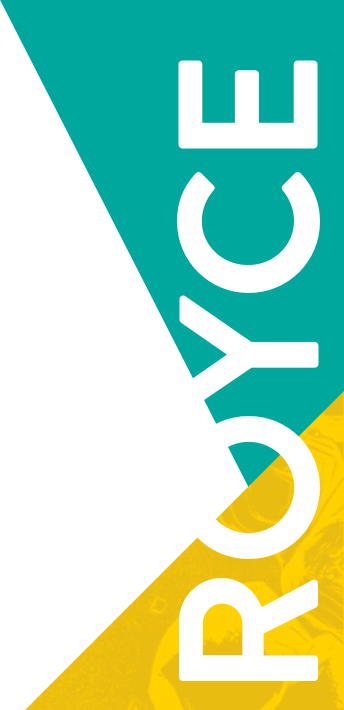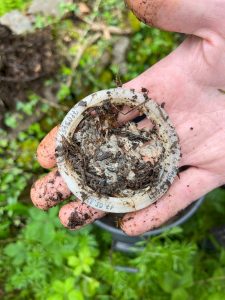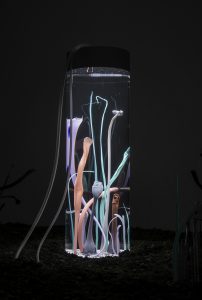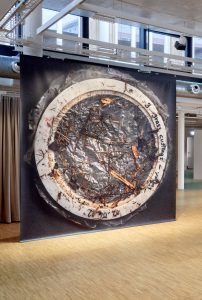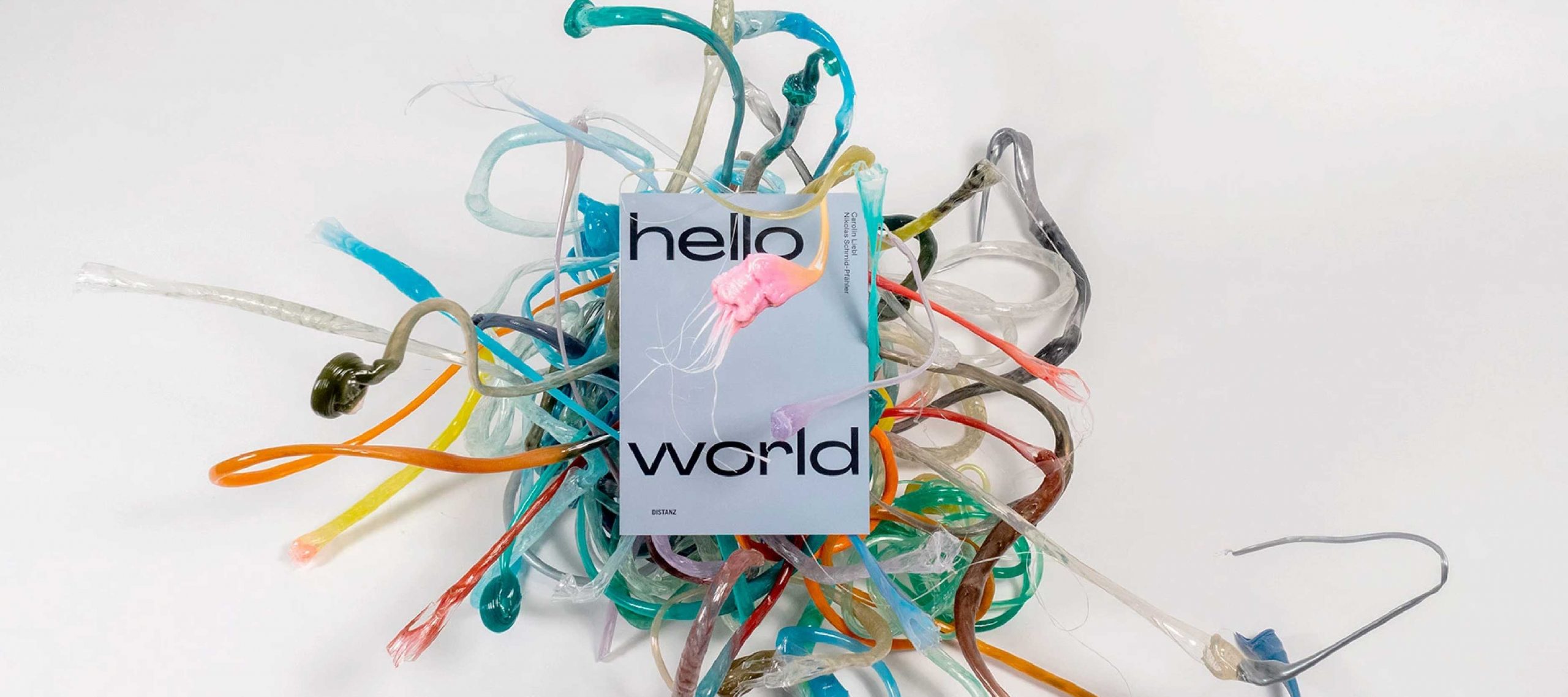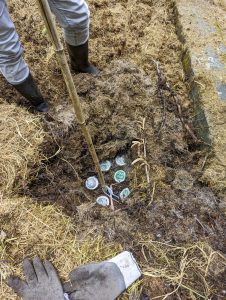By “embedding” the artworks within the Royce Hub Building, we hope to provoke reflection on the life cycles of materials, our complex relationship with synthetic matter, and perceptions and presumptions on their embeddedness in our lives.
Both pieces of artwork were created as part of the artist duo’s ArtNature/NatureArt Residency at Glenkeen Garden, Ireland, by the Crespo Foundation, Frankfurt am Main.
About the Artists
Carolin Liebl and Nikolas Schmid-Pfähler create enigmatic plastic sculptures in collaboration with robots. Through these and other sculptural and installation-based works, the artist duo explores the interweaving of natural and artificial, human and non-human, material and ideology.
Liebl and Schmid-Pfähler have been working as an artist duo since 2012. Both completed their studies in Fine Arts and Sociology/Media Theory at the University of Art and Design, Offenbach in 2017 with distinction. In 2019, they founded the interdisciplinary art space Atelier Wäscherei in Offenbach am Main and have served as its artistic directors ever since.
Since 2020, they have been pursuing ongoing artistic research into the life cycle of plastics in dialog with researcher Professor Michael Shaver at the Sustainable Materials Innovation Hub at the University of Manchester.
The duo’s works have been exhibited at numerous international exhibitions and are represented in prominent collections, including ZKM in Karlsruhe, Germany, WRO Art Center in Wrocław, Poland and Ennova Art Museum in Langfang, China. In 2022, their monograph hello world was published by Distanz Verlag, Berlin.
About Sustainable Futures
The exhibition is interwoven with the ambition of Sustainable Futures, one of the University of Manchester’s four research platforms. Sustainable Futures is built on the premise that realising sustainable futures requires new and integrative solutions to address the interacting global environmental challenges.
About Creative Manchester
Creative Manchester is another of The University of Manchester’s four research platforms, alongside Digital Futures, Healthier Futures and, our partner in this project, Sustainable Futures. Creative Manchester convenes and supports interdisciplinary research across three key themes: Creative Industries and Createch; Creative Health; and Civic Futures, looking especially at how creative practice can contribute to shaping new research.
